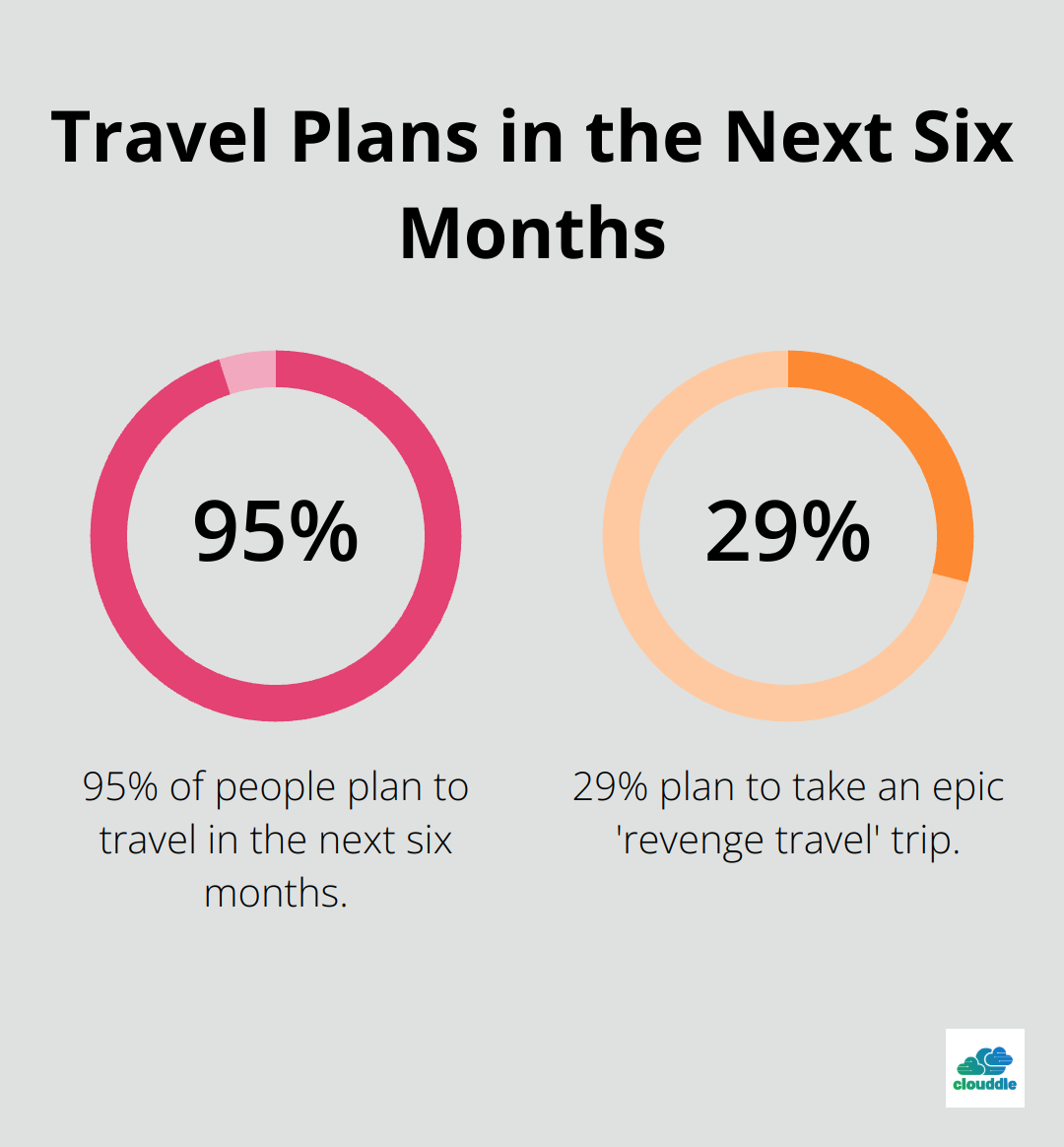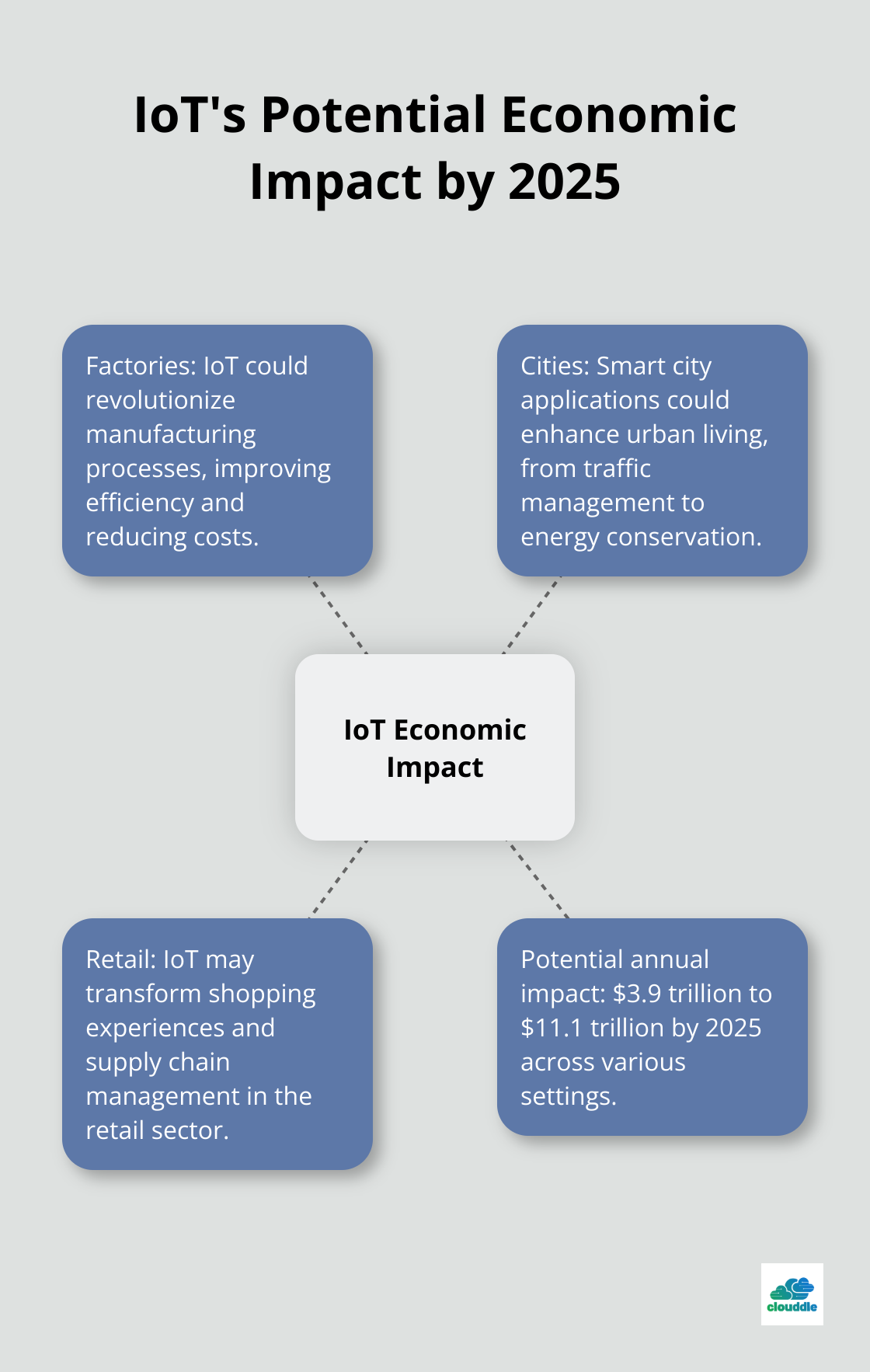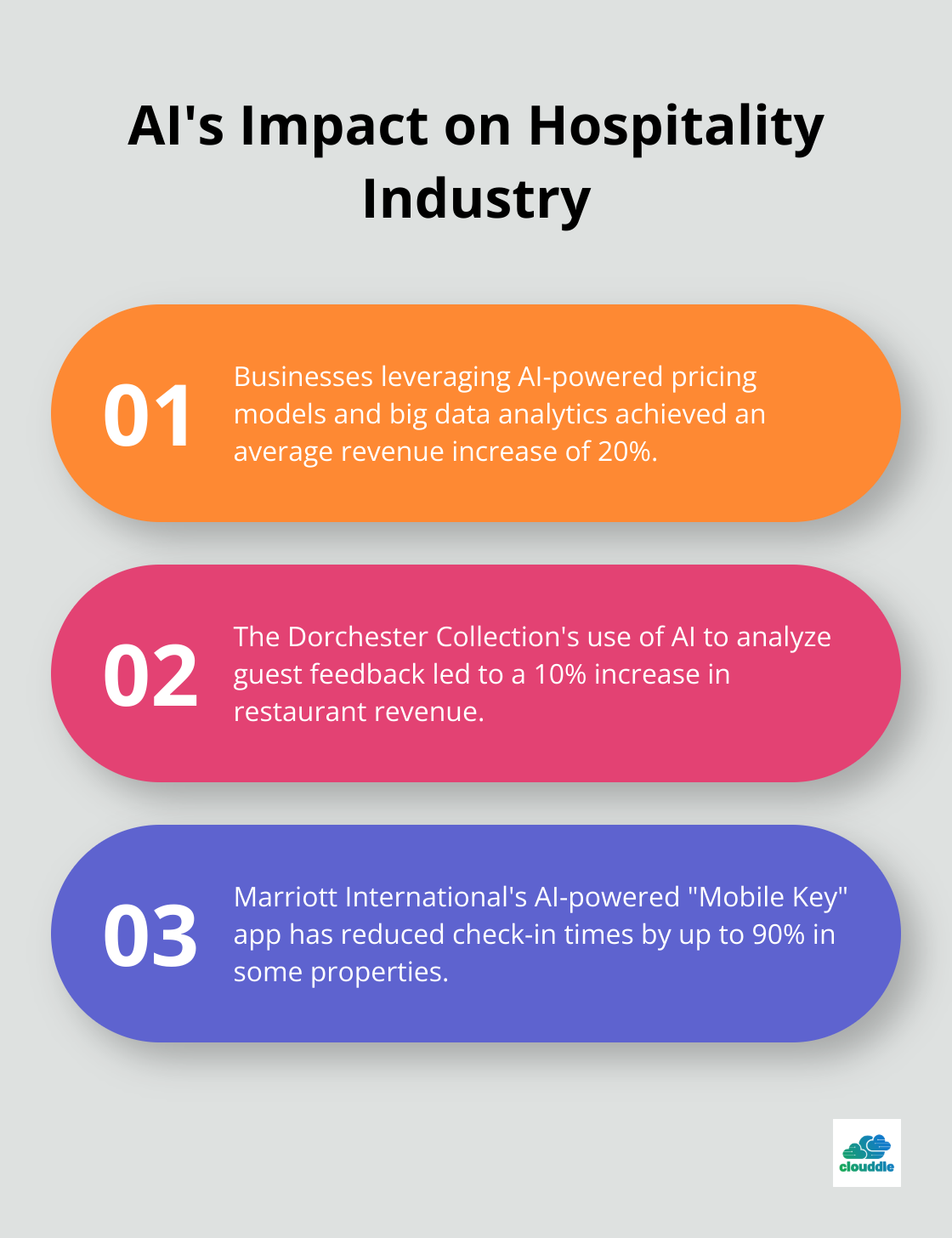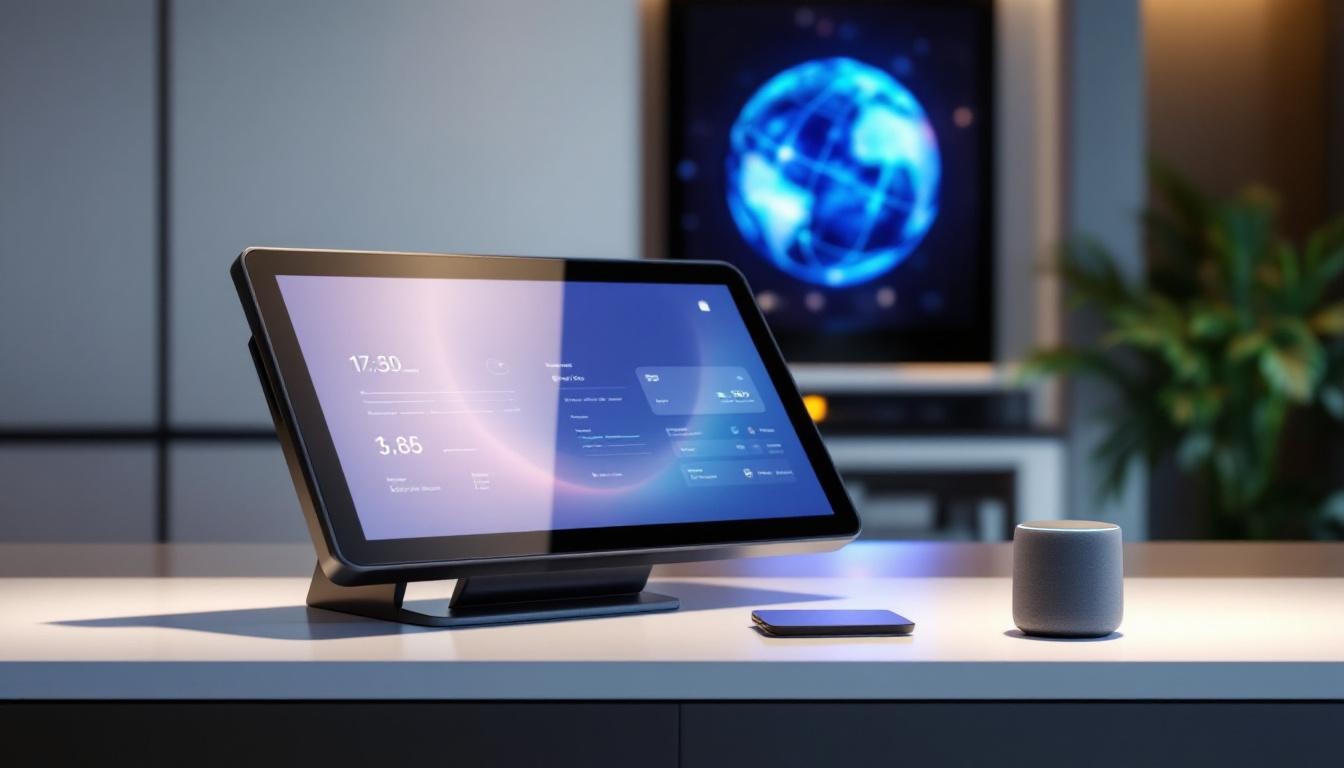The hospitality industry is undergoing a technological revolution. IT trends are reshaping how hotels operate and interact with guests.
At Clouddle, we’ve observed firsthand how these advancements are transforming the sector. From cloud-based systems to AI-driven services, the future of hospitality is digital, efficient, and guest-centric.
Cloud PMS Revolution: Transforming Hospitality Operations
Operational Efficiency Soars
The hospitality industry witnesses a seismic shift with the widespread adoption of cloud-based Property Management Systems (PMS). This technology redefines how hotels operate and serve their guests. Oracle has seen more than a 31% year-over-year increase in properties using OPERA Cloud PMS, including 3,500 properties in the last fiscal year. This boost stems from the automation of routine tasks like reservations, check-ins, and billing. Staff now process check-ins faster, allowing them to focus on providing personalized service to guests.
Real-Time Data Powers Decision-Making
Cloud PMS provides real-time data access, empowering hotel managers to make informed decisions instantly. This immediate access to occupancy rates, revenue figures, and guest preferences enables dynamic pricing strategies and targeted marketing campaigns.
Personalization Becomes Standard
Cloud PMS revolutionizes guest experiences through personalization. By storing and analyzing guest data, hotels tailor services to individual preferences. A study by Oracle Hospitality and Skift shows that 95% of people plan to travel in the next six months-with 29% taking an epic ‘revenge travel’ trip. Hotels can now remember a guest’s room temperature preference, favorite amenities, or dietary restrictions, creating a truly bespoke stay.

Integration Enhances Overall Efficiency
Cloud PMS seamlessly integrates with other hotel systems and services. This integration creates a unified ecosystem where data flows freely between departments. For example, the integration of PMS with point-of-sale systems allows for real-time updates of guest folios, reducing billing errors and improving checkout efficiency.
Security and Compliance Improve
Cloud PMS providers (like Clouddle) prioritize data security and compliance with industry regulations. These systems often include built-in security features such as encryption and regular backups. This focus on security helps hotels protect sensitive guest information and maintain compliance with data protection laws (e.g., GDPR).
As we move to the next frontier in hospitality technology, the Internet of Things (IoT) promises to take guest experiences and operational efficiency to new heights. Let’s explore how IoT is reshaping the hospitality landscape.
IoT Revolutionizes the Hospitality Landscape
The Internet of Things (IoT) transforms the hospitality industry, creating smarter, more efficient hotels and enhancing guest experiences. This technology reshapes how hotels operate and interact with their guests.
Smart Rooms Boost Energy Efficiency
IoT is revolutionizing the hospitality industry by offering personalized guest experiences, smarter infrastructure, and efficient operations. These rooms use sensors and connected devices to automatically adjust lighting, temperature, and window shades based on guest preferences and occupancy. This reduction in operational costs appeals to environmentally conscious travelers.
Predictive Maintenance Minimizes Downtime
IoT sensors on hotel equipment detect potential issues before they become major problems. For example, a sensor on an air conditioning unit can alert maintenance staff to unusual vibrations or temperature fluctuations, indicating the need for servicing. This proactive approach reduces equipment downtime and extends the lifespan of hotel assets. IoT could have an annual economic impact of $3.9 trillion to $11.1 trillion by 2025 across many different settings, including factories, cities, and retail.

Location-Based Services Enhance Guest Satisfaction
IoT technology enables hotels to offer location-based services that improve the guest experience. Beacon technology sends personalized offers to guests’ smartphones as they move through the hotel. A guest passing by the spa might receive a discount on treatments, while someone near the restaurant could get a notification about the day’s specials.
Wearable Technology Streamlines Staff Communication
Hotels now use wearable devices (such as smartwatches) to improve staff communication and efficiency. These devices allow instant messaging between departments, real-time task assignments, and quick guest request responses. This technology reduces response times and enhances overall guest satisfaction.
The integration of IoT in hospitality marks a fundamental shift in hotel operations and guest services. As we explore further technological advancements, Artificial Intelligence and Machine Learning emerge as the next frontier in hospitality innovation, promising even more personalized and efficient guest experiences.
AI Transforms Guest Experiences
Artificial Intelligence (AI) and Machine Learning (ML) revolutionize the hospitality industry, offering unparalleled personalization and efficiency. These technologies reshape guest services and hotel operations, creating a new standard for the modern hospitality experience.
AI-Powered Guest Assistance
AI-powered virtual assistants and chatbots are now capable of handling a wide range of guest requests with little to no wait time. These intelligent assistants handle a wide range of guest inquiries 24/7, from room service orders to local recommendations.
These AI assistants significantly reduce the workload on human staff, allowing them to focus on more complex guest needs. The Hilton chain’s AI concierge, “Connie,” answers guest questions about hotel amenities, local attractions, and even provides directions in multiple languages.
Revenue Optimization Through Predictive Analytics
AI and ML algorithms transform revenue management in the hospitality sector. These systems analyze vast amounts of data (including historical booking patterns, competitor pricing, and even weather forecasts) to optimize room rates in real-time.
Businesses leveraging AI-powered pricing models and big data analytics achieved an average revenue increase of 20%.
Personalized Guest Experiences
AI’s ability to process and analyze guest data enables hotels to offer highly personalized experiences. From room temperature preferences to favorite amenities, AI systems remember and anticipate guest needs.
The Dorchester Collection uses AI to analyze guest feedback across their properties. This analysis has led to improvements in their food and beverage offerings, resulting in a 10% increase in restaurant revenue.
Streamlined Check-In and Check-Out
Automated check-in and check-out processes powered by AI become increasingly common. These systems reduce wait times and minimize human error in the process.
Marriott International’s AI-powered “Mobile Key” app allows guests to bypass the front desk entirely, using their smartphones to check in and access their rooms. This technology has reduced check-in times by up to 90% in some Marriott properties (a significant improvement in guest satisfaction).
AI-Enhanced Security Measures
AI technology enhances security measures in hotels. Advanced facial recognition systems and AI-powered surveillance cameras improve guest safety and prevent unauthorized access. These systems can identify potential security threats in real-time, allowing for swift response from hotel staff.

Wrapping Up
The hospitality industry faces a technological revolution. IT trends in the hospitality industry reshape guest experiences and hotel operations. Cloud-based systems, IoT, and AI transform how hotels function and serve their guests.
Technology adoption gives hotels a competitive edge. Hotels that embrace these innovations offer superior guest experiences and improve operational efficiency. Future developments promise even more exciting advancements in augmented reality, blockchain, and robotics.
We at Clouddle understand the importance of IT trends in hospitality. Our technology solutions help hotels navigate this digital transformation. From managed IT to Wi-Fi services, we provide tools for hotels to thrive in this tech-driven era (and exceed guest expectations).


